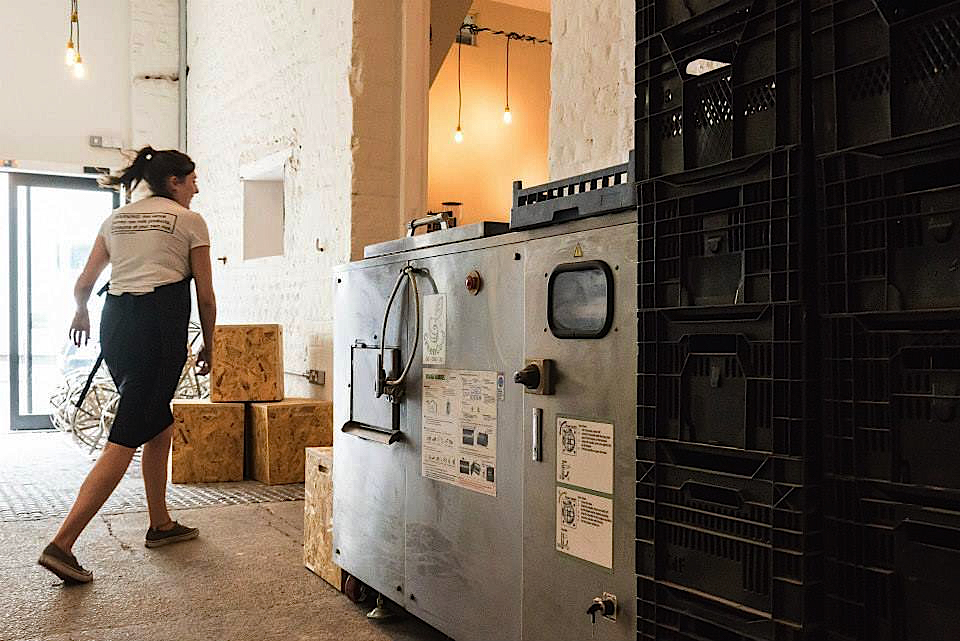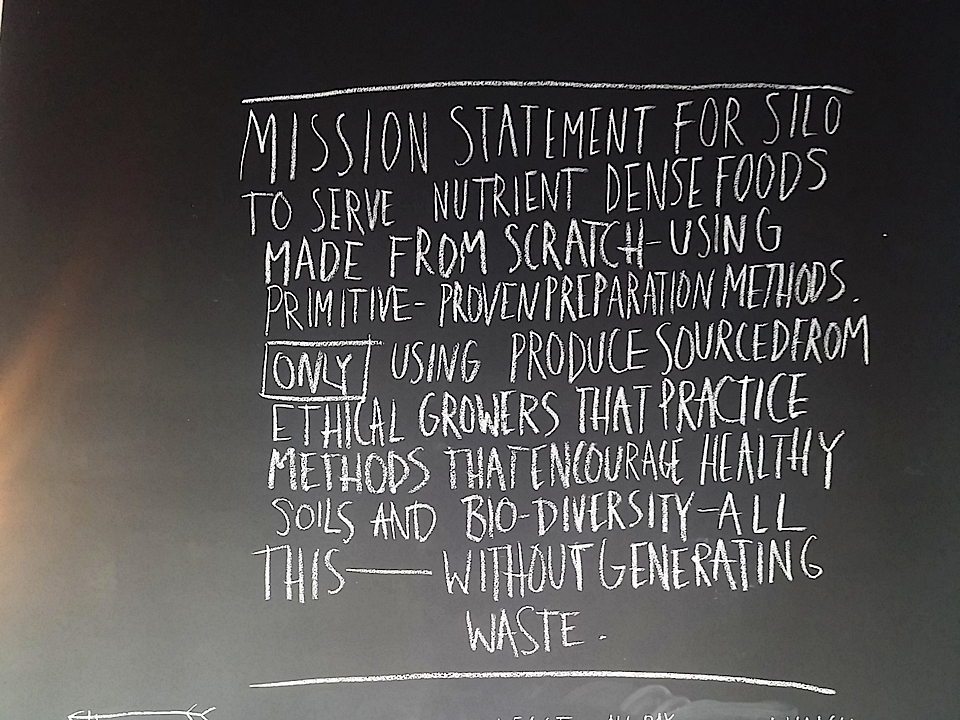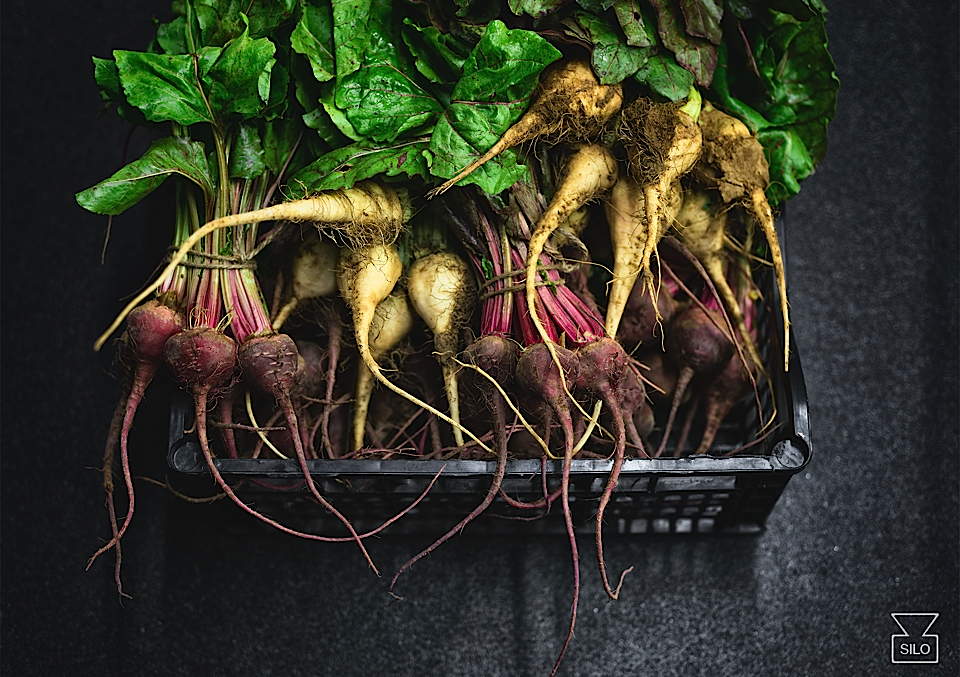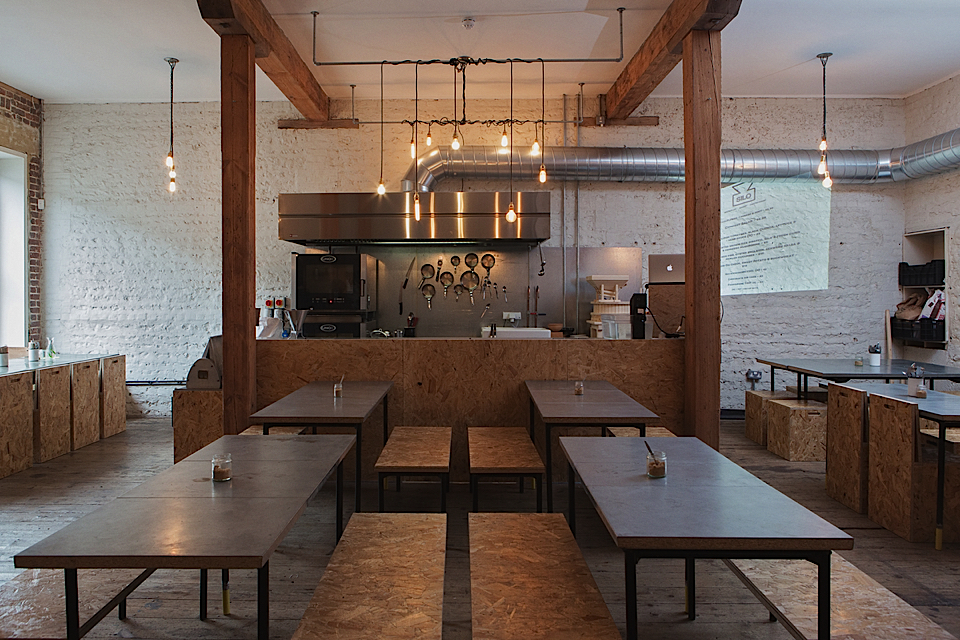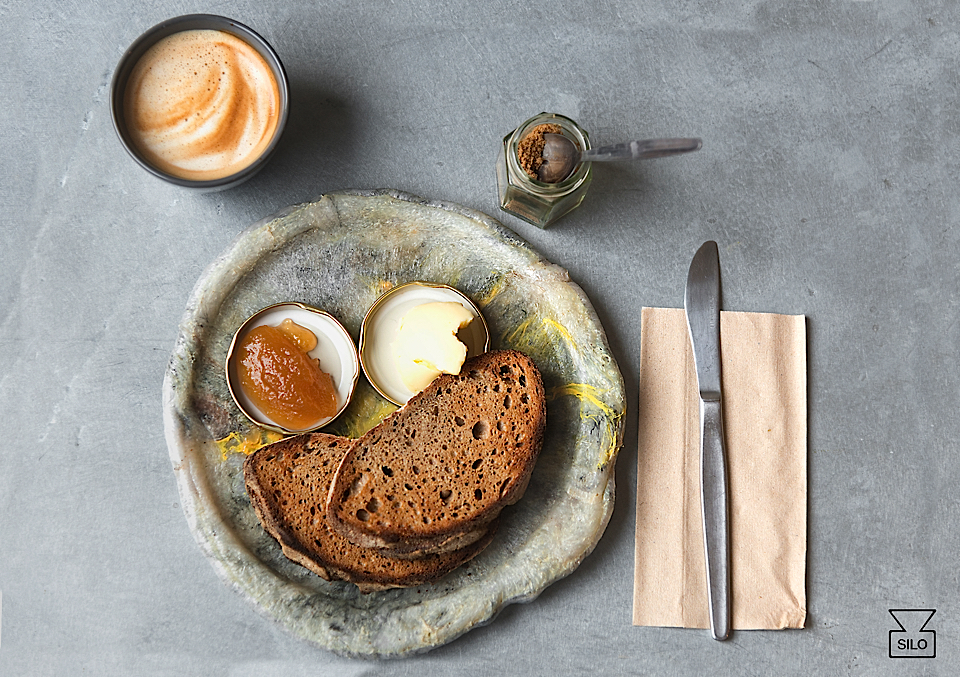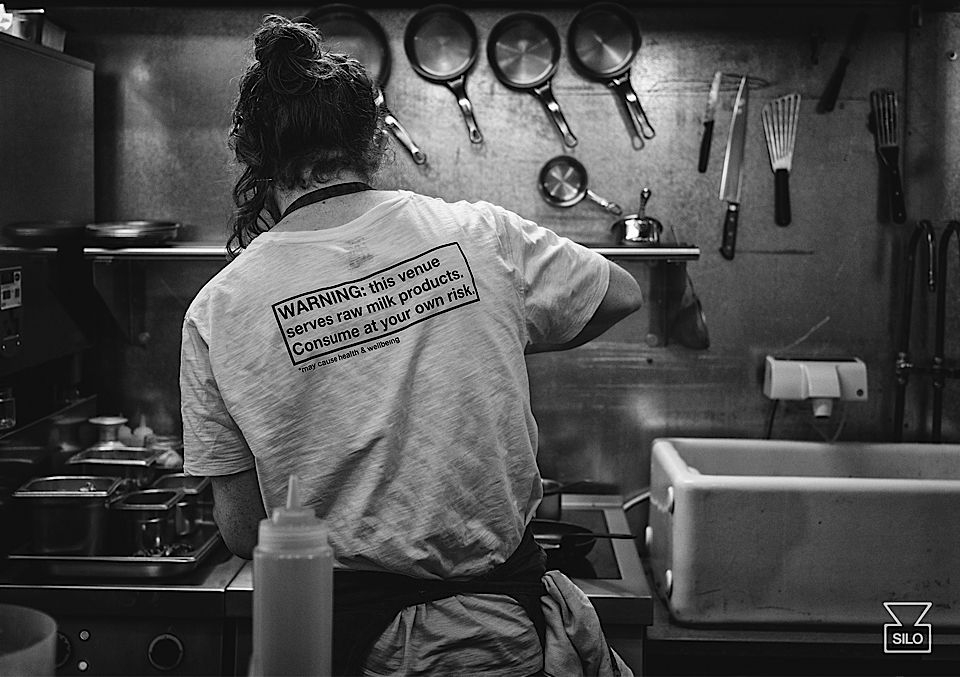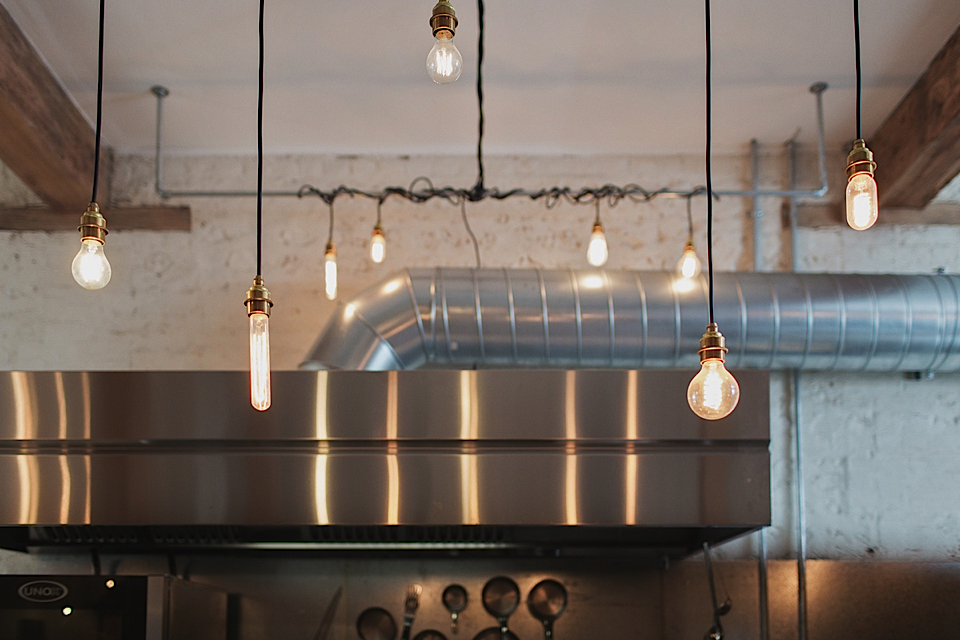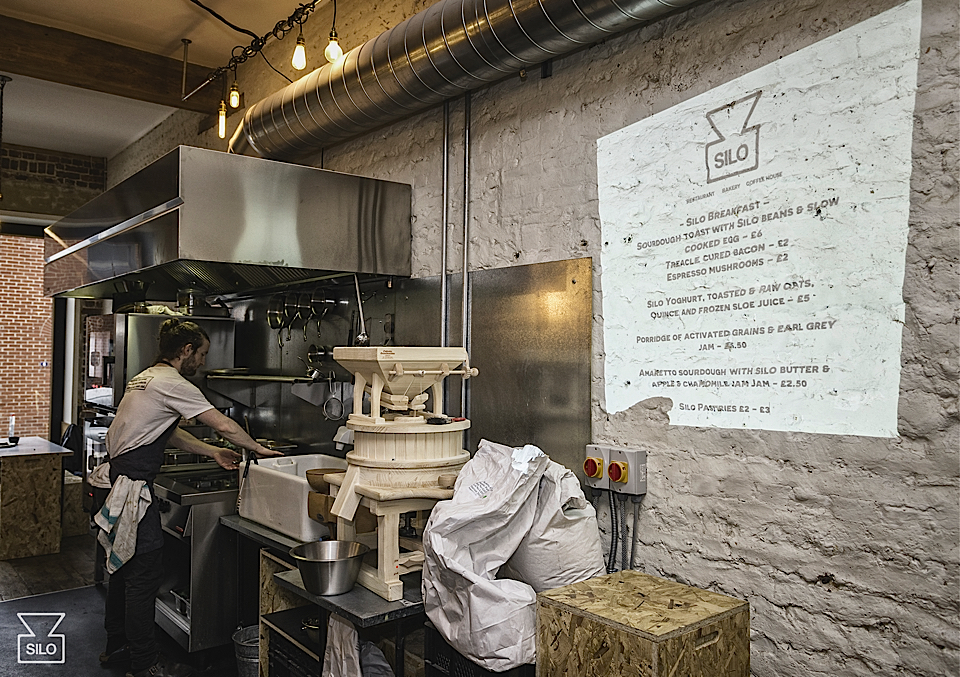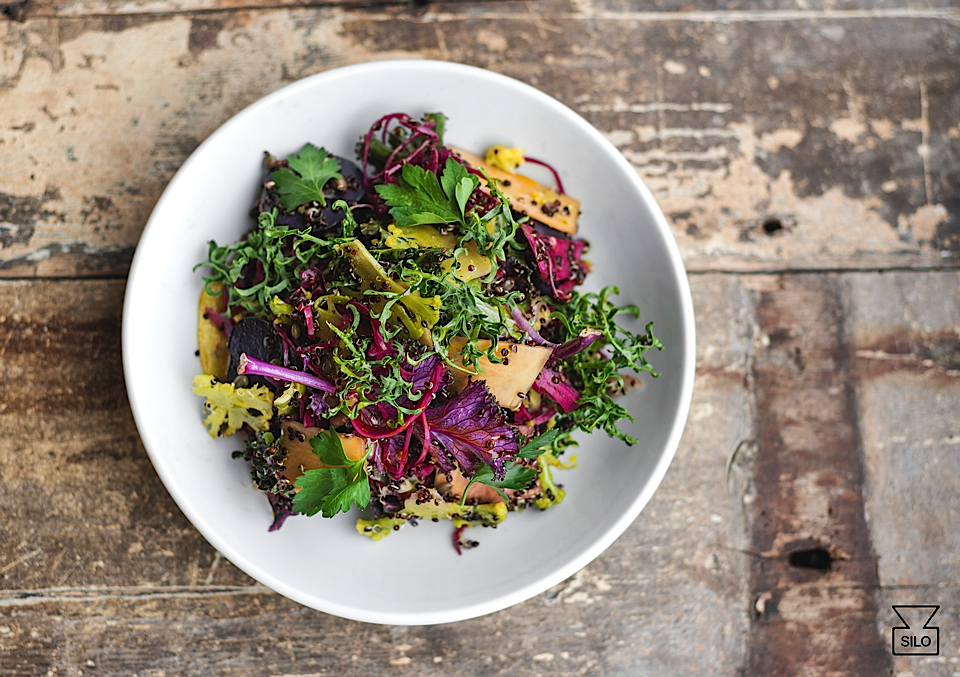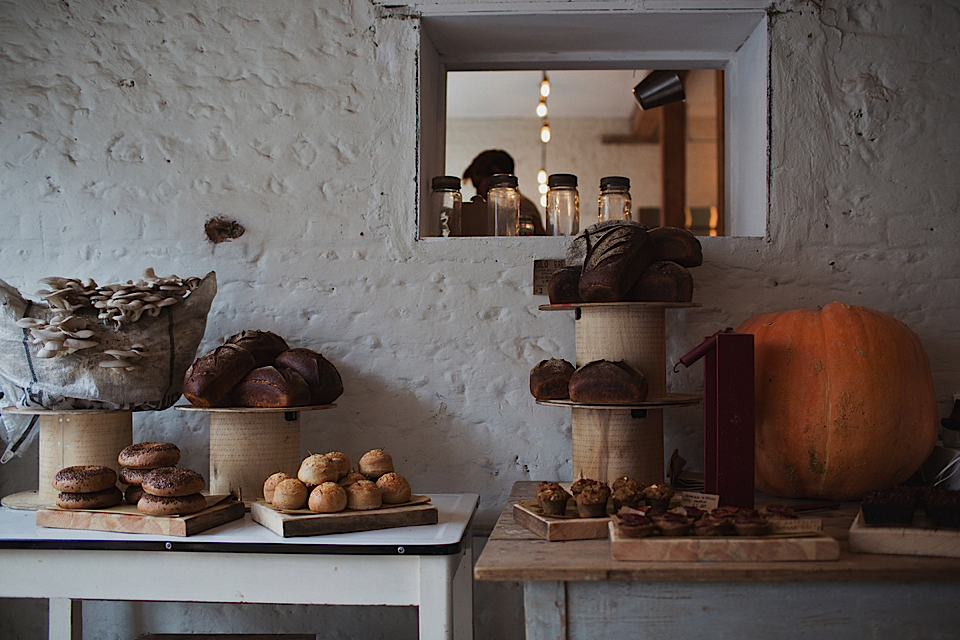FOOD FUTURE
silo

Today’s food industry is a mess. Over 100 million tonnes of food are wasted annually in the EU and globally as much as half of all the food produced in the world – equivalent to 2bn tonnes – ends up as waste every year… The world is waking up to the reality of sustainable issues with waste leading the way as one of the biggest topics of recent years. Health is one of the major concern of the future and all the food cycle is involved in this long term trend.
People are now more interested in how their food reaches their plates, and the carbon footprint associated with.
After twelve years fine dining experience from all over the world, head chef Douglas McMaster, returned to the UK hoping to change completely the way restaurants source, cook and sell their food. His philosophy is quiet simple: only locally grown and seasonal food are served; nothing is thrown away! Douglas’s restaurant – Silo- minimises up to 95% of the usual waste produced from traditional restaurants.The concept is so powerful that we hope it will have an effect on the whole restaurant industry.
In the ground floor of a handsome warehouse in the heart of Brighton’s trendy district Silo – the UK’s first zero-waste – take place.The overall design is pure, raw and undone. Using a local non-profit making community project who ‘use and share unwanted goods’, Baines&Fricker – repurposed old school tables and used office floor insulation to make tables and bench seating. These designs are coupled with modular stools and chairs made from sterling board OSB. Virtually everything in the restaurant is upcycled or made from intercepted waste materials- from cutlery, jam jar glasses to plates made from recycled plastic bags
In his journey to achieve zero waste McMaster and his team discovered primitive food systems that not only support a package-free lifestyle but has led to a way of preparing food from its wholest form. They mill flour, make yoghurt, roll oats, bake bread, brew vinegar and beer, culture cream, grow mushrooms, cure meat, deal directly with farmers and compost all food scraps in-house. It’s a pre-industrial food system adapted to a modern kitchen. The yoghurt and butter are made from fresh milk, any excess milk is being used to make a curd. The flour mill uses ancient grain varieties to make a signature 48 hour sourdough bread.
The compost machine is functioning well and each week they make over 100 kilos of nutrient rich compost from their food, espresso and other biodegradable waste.Silo has also managed to operate chemical-free with a water electrolysis system. This innovative technology splits tap water into an alkaline and an acidic solution which effectively cleans surfaces killing 99% of bacteria. Electrolized water can be used for both human sanitation and cleaning and offers a more sustainable and ecological alternative to conventional chemical cleaning products.
Behind every dish is a story to be told, of a farmer, a forager, a fisherman, a hunter, a brewer, a baker and many more. So many creative, passionate people are involved that it’s a collective project and a way of life. As Douglas McMaster says : « Food can be a wonderful vehicle for social change. »
Cecile Poignant
Photos: XDB Photography & DevlinPhotos
silobrighton.com
